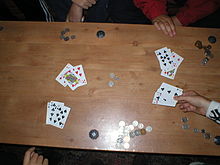*This post is testament to what happens when you attempt to process your musings on the bus ride home with half-hearted regression analysis. Both Econometrics and Storytelling were harmed in the making of this post.
There are some girls
who have their wedding dresses picked out at age nine. Age and body mass
changes may make some alterations to this design, but the final wedding dress
will be a beautiful princess cut ivory dress with a sweetheart neckline and
delicate sleeves, just like she drew at Kowah’s 9th birthday
sleepover.
There are others who
have to be cajoled and prodded by nature and society to contemplate their
wedding days. Even then, they (brandishing a risk aversion fashioned by
experience and/or inherent nature) reluctantly enter the pool and readily grasp
on to any mishap as reason to head back to shore and stay there.
Time and tide doth
happen to both groups, and it’s interesting to note a convergence in attitude
towards marriage with time.
Your college years are
purported to be prime partner-finding time. You will never again have as big a
pool of eligible, relatively untouched suitors within ready reach. The ‘relatively
untouched’ is crucial because as you grow, you realize that people’s college
and post-college experiences changes them. And if the liaisons before you did
not end at the altar, they invariably carry some baggage which adds another
level of difficulty to being with them.
It follows then that
the years right after college are the years you see the most nuptials. Those
who sustained their campus (and sometimes high school) relationships make it
official, and those whose progress was impeded by perceived immaturity quickly
grow up once thrown into the jungle that is today’s workplace and if so
inclined, find mates thereafter.
Receiving wedding
invitation after invitation takes its toll on a soul, and this is the time
where the desire to one day (sooner or later) get married is strongest. This
lasts one to four years after which the invitations become infrequent, and
controlling for the fact that you lose touch with old friends, it is at this
stage that those who got married have gotten over the honeymoon phase and the
cracks if any start to show.
Thus, amidst the tales
of infidelity and divorce, the marriage stock falls, making you more likely to
invest your time, energy or emotions elsewhere, or at the very least, make some
reallocations in your investment portfolio. Of course, there is a mixed effect
here due to invitations to offspring events potentially pulling at your
maternal and paternal strings to be accounted for.
It is easy to see why
the propensity to get married sees a steady decline once you reach thirty. At
this stage, you know exactly what you do and don’t want. Worse, you’ve probably
figured out (rightly or falsely so) that you let someone who was exactly what
you needed go and so tend to measure everyone by them, requiring that they be
at least as good as. I know. Life…
After thirty, the
decline slows down and your curve approaches the axis as time approaches
infinity, never quite touching it.





